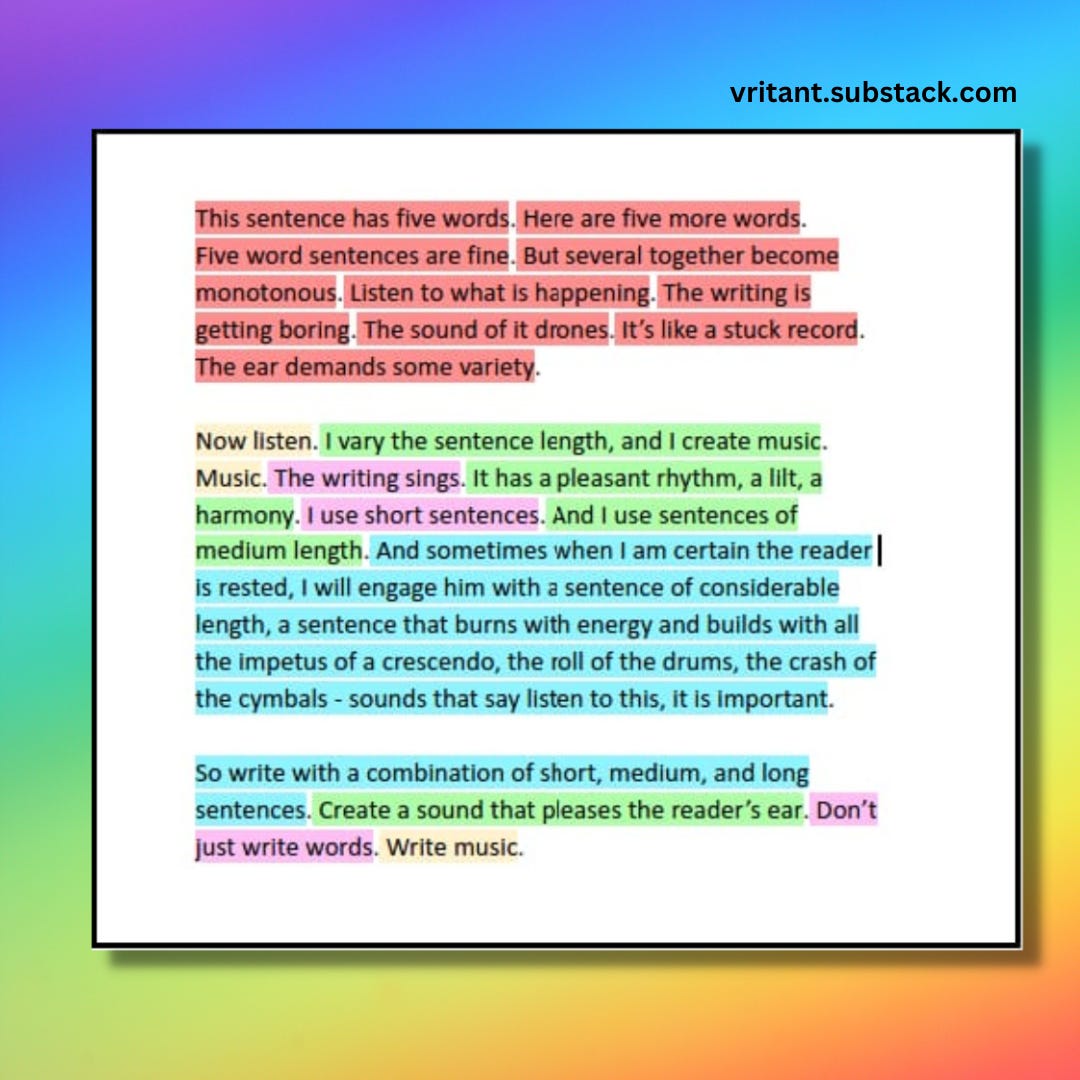3 Ways You Can Leverage the Art of Storytelling in Your Writing
Writing on here after so long that I am afraid your first question might be 'did I really subscribe to read him?'
I had an awesome weekend.
Last week, I tried my hands at different things. From recording my first podcast episode to giving 100% for my exams (gosh, after so long!), it feels good.
At the same time, last week, I had one realization…
It’s better to have a sustainable approach than to have an overwhelming and impatient outlook.
Out of the blue? Not really. So why and how, you ask.
So the thing is, I tend to look at things from a short-term perspective whenever time duration is concerned.
Compounding as a concept has lately become a relic of the past for my mindset. RIP.
I feel more impatient than ever. Fast. Fast. Fast.
And when I don’t see the results—which I will not, obviously—I quit.
That may be the right thing to do sometimes.
But sometimes you need to persevere. Just push forward in the face of a rocky obstacle.
You need to face the learning curve to experience that hockey-curve growth.
Here comes my constructive mindset approach. Yes, I am low-key proud of it.
I have decided to view it as a game—let’s say Wordle.
(Are you a Wordle die-hard?)
What is more important than correctly solving it every day? You have to show up!
You have to take a guess in the first two or three turns. And only then will the path forward light up.
Or that’s the case on a normal day, at least.
What’s the catch?
You have to make an effort without worrying about the results. The more you progress on the path, the clearer it becomes.
It was one hell of a lot of realisation for a 17-year-old, right?
And that’s why the weekend was lit!
Okay, okay, okay…
let’s move on to today’s title of the letter. And that is about Storytelling 101.
Small note: I like writing in this informal tone/way/structure (that sh*t became formal in itself lol).
That’s why I decided to let this letter be a vent where I can write as if I’m having a conversation with you.
Are we cool?
Let’s see how that goes.
So today let’s talk about how we can leverage the power of storytelling in our writing.
Don’t be my professor
Or if you want to, you better be The Professor from Money Heist.
In other words, never do thesis statements.
We can put progressing stories by stating mere facts and happenings with no juice of creativity, commentary or play of perspectives in this basket. *Boring, duh!*
That’s one point where we get annoyed the most.
Be it our teachers lecturing or a stranger dumping unrelatable facts and figures straight in our faces.
Who likes thesis statements? No one. Or maybe just me, the writer and orator of my words.
Except for that, NO ONE.
What we can do instead: add drama.
Now that’s something we all like, don’t we? From our classroom “matter” to our family dra… leave it, y’all will start cancelling me.
The crux of the story? We do enjoy drama. And for a very good reason.
When reading something that has an angle of contrast or conflict, we gravitate towards reading it.
We want to know where it goes. How it ends. Who will win. And who will lose…
Make use of it in your writing.
Instead of writing a black-and-white chain of events, you can…
Make the moment unexpected. Throw in something random that’ll maybe connect in the future.
Create a contrast between the events. You can be creative here. A cute little example: compare how the character thinks things would turn out vs reality. Hard, grim reality. Sounds interesting, right?
Set the scene, then break the expectations. Have you ever noticed how our beloved standup comedians do this very thing every single fucking time?
♫ Write music ♫
I borrowed this from a cool thread on Twitter I read months ago.
It’s so cool and simple that it has stuck in my mind ever since.
It’s more of a formatting hack than a storytelling one.
But we can’t underestimate the psychological factor in retention.
Assume you write short sentences. Only short sentences.
Your readers might feel you’re finishing off early and they are missing out on details. A long sentence like the previous one helps provide the nuance.
The same goes for long ones. Your readers will feel resistance in the story and have to use a lot of mental muscles to comprehend.
Give them a break—a breath of fresh air. And write music.
This way, you’ll be able to leverage and keep in check the pros and cons respectively.
Try this one, it’ll surely make your story FLOW
After all, if they didn’t read your story, does it even matter how brilliant it was? So make sure to keep them hooked down the line..
I’m You and You are Me
aka BE REALATABLE.
I just love these kinds of phrases; they hit hard. Be real. Just do it. Stay positive. Dream big…
Being relatable is the secret sauce self-help and productivity writers use all the time to rack up millions of book sales and top NYT bestseller lists.
They will start off with how they were once broke, a big failure, on drugs and whatnot… and how they ultimately changed to write the book you’re reading.
Cool!
But being relatable is more than just that.
It’s not always about the problems, it can be about scenarios, vibes, or better yet, a solution.
You need to tap into your readers’ headspace and think about what they can relate to and what they can not.
In fiction, you can combine it with the uncertainty factor to give them a pleasant surprise. Just turn the world upside down for them. (Point number 1)
In non-fic writing… well, do I still need to tell you the use cases lol.
So, yeah, that was it for today. I hope you had a good time reading this.
I’m planning to write issues of this letter like this. It’s fun writing in a conversational style.
And occasionally breaking a couple of grammar rules. It's like starting the previous sentence with ‘and’. Grammar Nazis, sorry.
Let me know how we can make this newsletter better, together. Hit reply, comment, or email me at hi@vritant.me.
Talk soon.
Okay, bye!





